
Sleek storytelling & costly illusions: WNO's Alcina
ReviewIs the cold harsh truth better than a comforting lie? That is the question asked by Handel’s Alcina, an opera filled with lies and illusions; the beauty of Alcina’s island, Bradamante’s disguise as Ricciardo, and Ruggiero’s enchanted love for Alcina are all falsehoods whose exposure have serious emotional consequences for the characters of this story. “Ignorance is bliss,” so the idiom says, and yet another reminds that “the truth will set you free.”
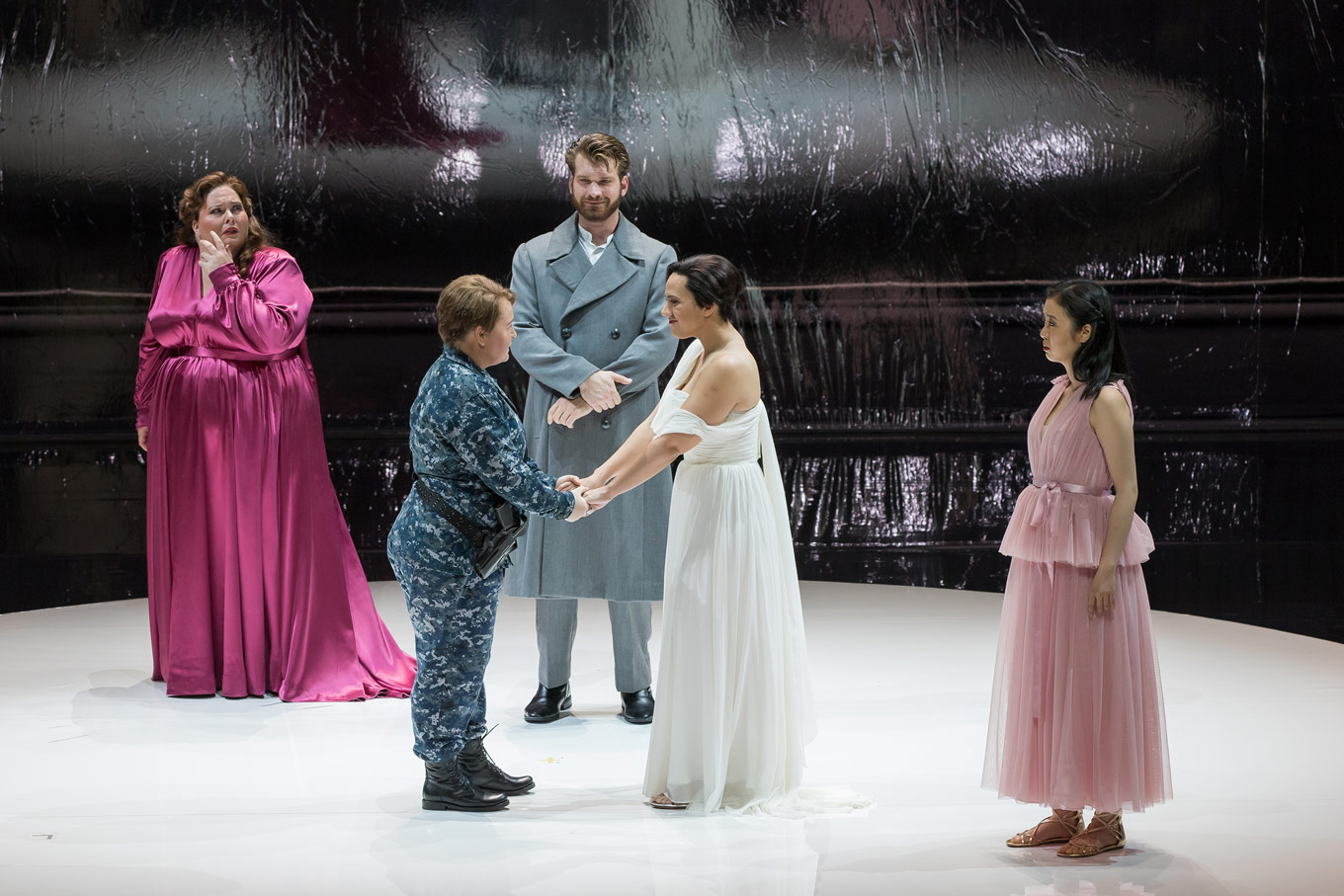
The Washington National Opera has temporarily relocated from the Kennedy Center’s 2,300 seat Opera House to its smaller Eisenhower Theater in order to present this intimate and minimalist Alcina. The decision, which, WNO artistic director Francesca Zambello insisted in her welcoming remarks, had nothing to do with the fact that a touring production of The Book of Mormon had taken over the Opera House, serves Handel’s opera well, as it can be easy for all but the biggest voices to become swallowed up in the Center’s larger hall.
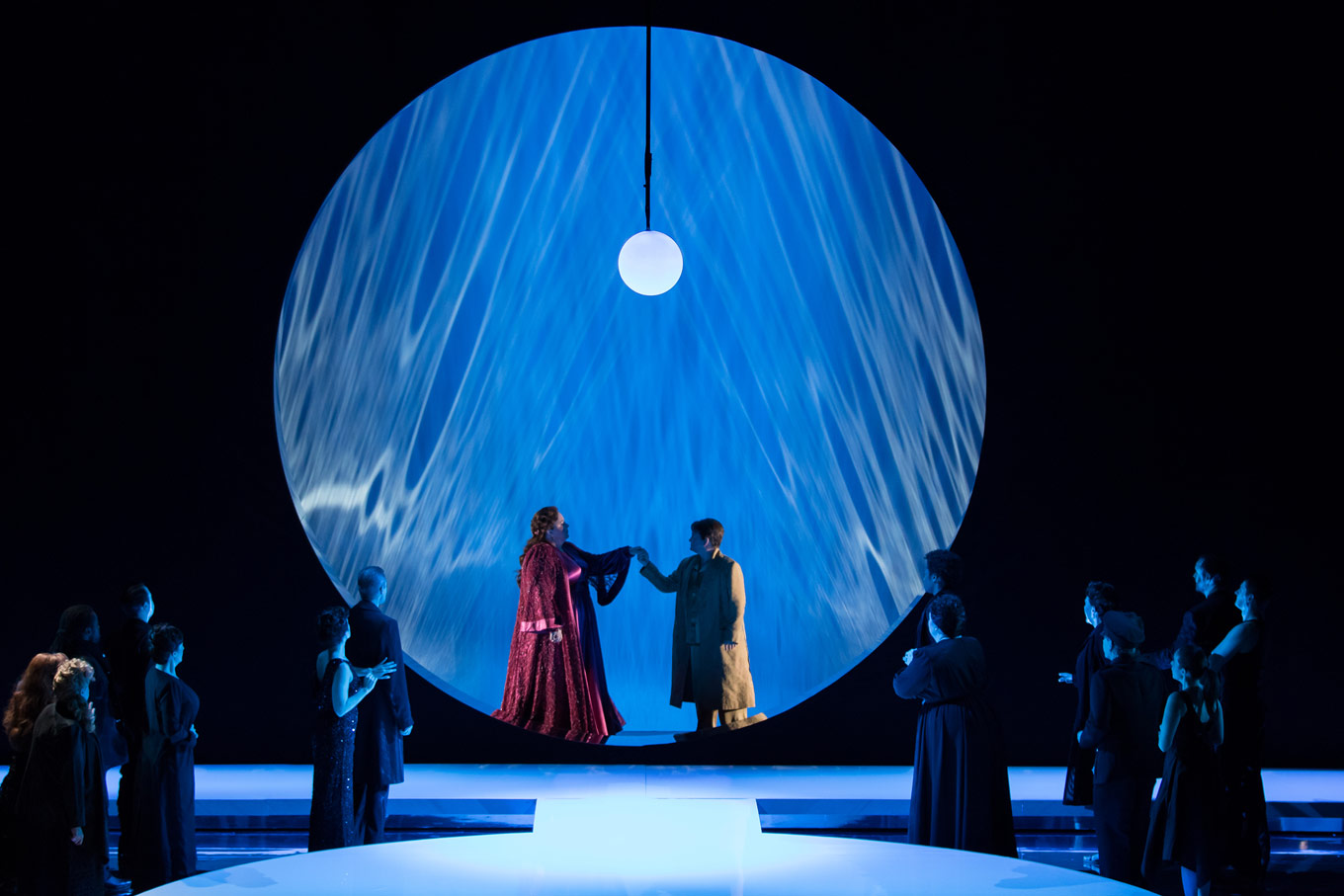
Director Anne Bogart’s sparse production, with sleek, futuristic sets design by Neil Patel, is also better suited to the smaller theater, as it invites a zoomed-in focus on the characters’ emotions which get melted down and poured out through each aria. The curtain rises on an almost completely bare stage, only a large circular platform at the center with a series of white cubes situated around it, and a dark backdrop with a great circular window through which Alcina makes her first appearance, accompanied by a mysterious glowing orb that descends from above, and appears whenever Alcina is present.
As the overture plays, members of the chorus enter one by one to find their seats on the white cubes. These are Alcina’s past lovers, both men and women, who have been transformed and trapped by her spells. Among them are four dancers who are used to great effect by Bogart and choreographer Barney O’Hanlon, who weaves their movement throughout the opera, fully integrating them within the action and allowing them to interact with the singers as they perform arias. The dancers’ presence blends in perfectly with the almost dance-like movements of Bogart’s staging, which elegantly did the job of marrying the modern production design with Handel’s 18th century musical aesthetic.
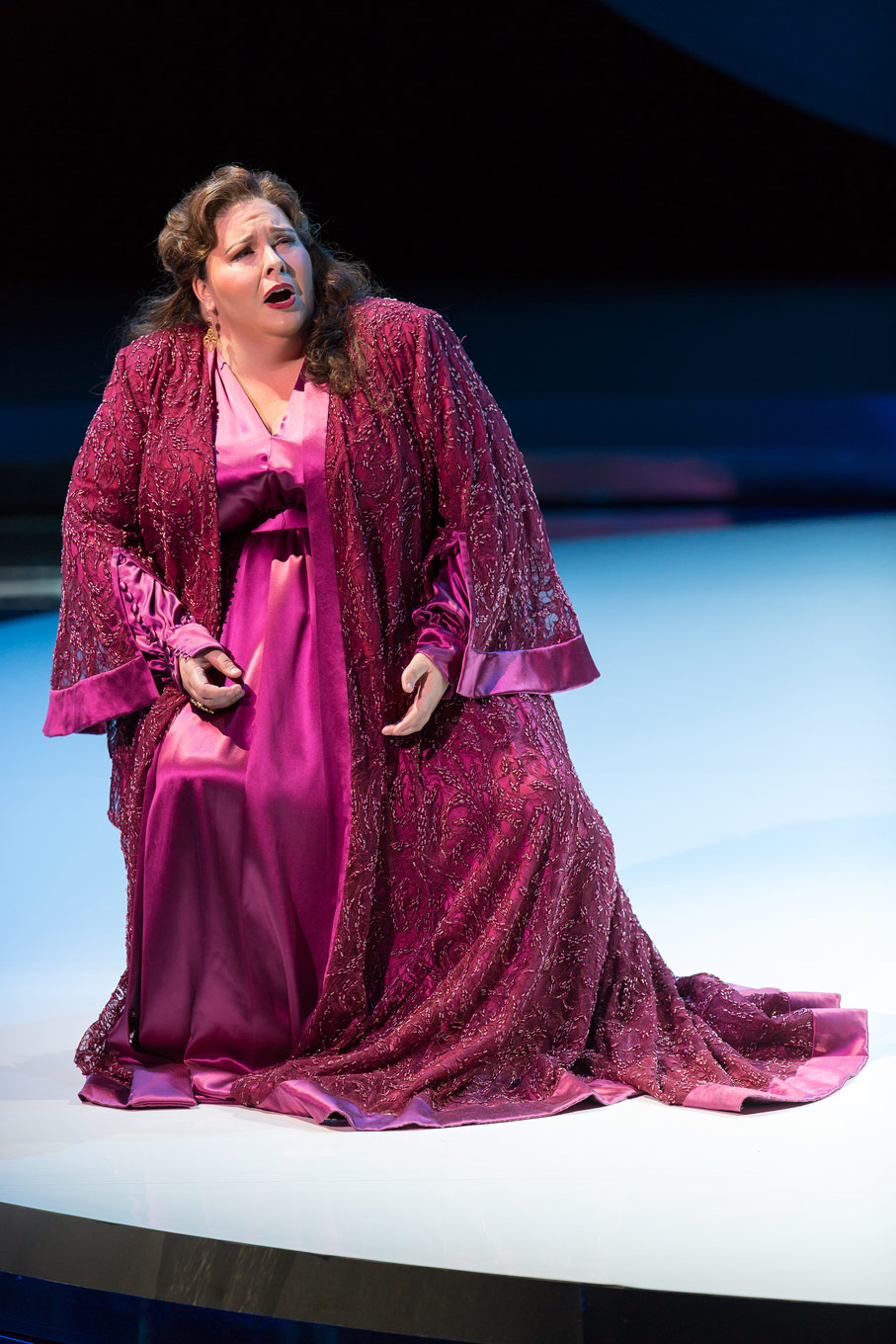
Angela Meade brings the presence of an operatic grande dame to the title role, especially in her first aria, staged to show her magically manipulating her enchanted lover Ruggiero, who sighs with a flick of Alcina’s wrist, swoons at the point of a finger, and is magnetically drawn to her by a beckoning hand. Meade offers a palette of vocal colors which she uses most effectively in her more plaintive arias during the second half, but at times the voice seems too broad and weighed down for the clean, withheld elegance of Handel’s music.
Meade’s face and name has been plastered all over the marketing for this production, so it’s somewhat surprising that, while her singing is extraordinary, she is outshone by her costars, most notably Ying Fang, making her company debut as Morgana, who received the most enthusiastic ovation of the evening. Fang is radiantly charismatic and her voice is all bubbly champagne as she performs the showstopping “Tornami a vagheggiar” with impossible ease and grace, and then later sings “Credete al mio dolore,” with breathtaking beauty and lyricism.
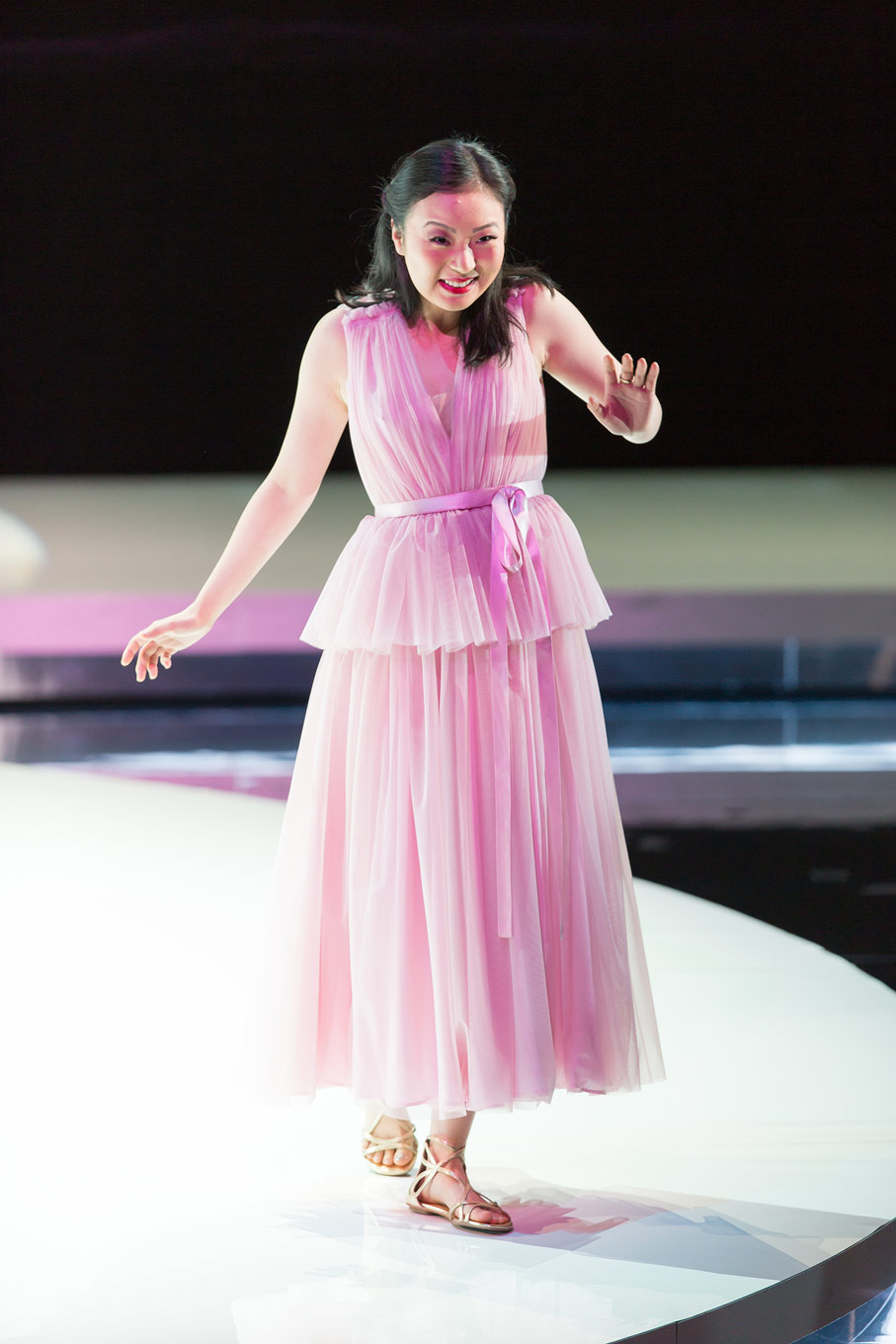
As Ruggiero, Elizabeth DeShong offers crisp, lightning-fast coloratura and a deliciously warm, dark vocal color as she successfully channels the bumbling machismo of a man who thinks with what’s in his pants instead of what’s in his head.
Daniela Mack is a sympathetic Bradamante with a slightly bigger, more exciting mezzo soprano voice which lends itself well to a character desperate to rescue her lover from the titular enchantress.

The WNO orchestra is conducted artfully by Jane Glover who keeps tempos snappy and effervescent, even in slower passages. A teacher once told me that “all baroque music is dance music” and Glover maintains that spirit throughout the evening. The addition of theorbo to the pit gives the orchestra an authentically 18th century sound without resulting the pedantry of a period instrument performance.
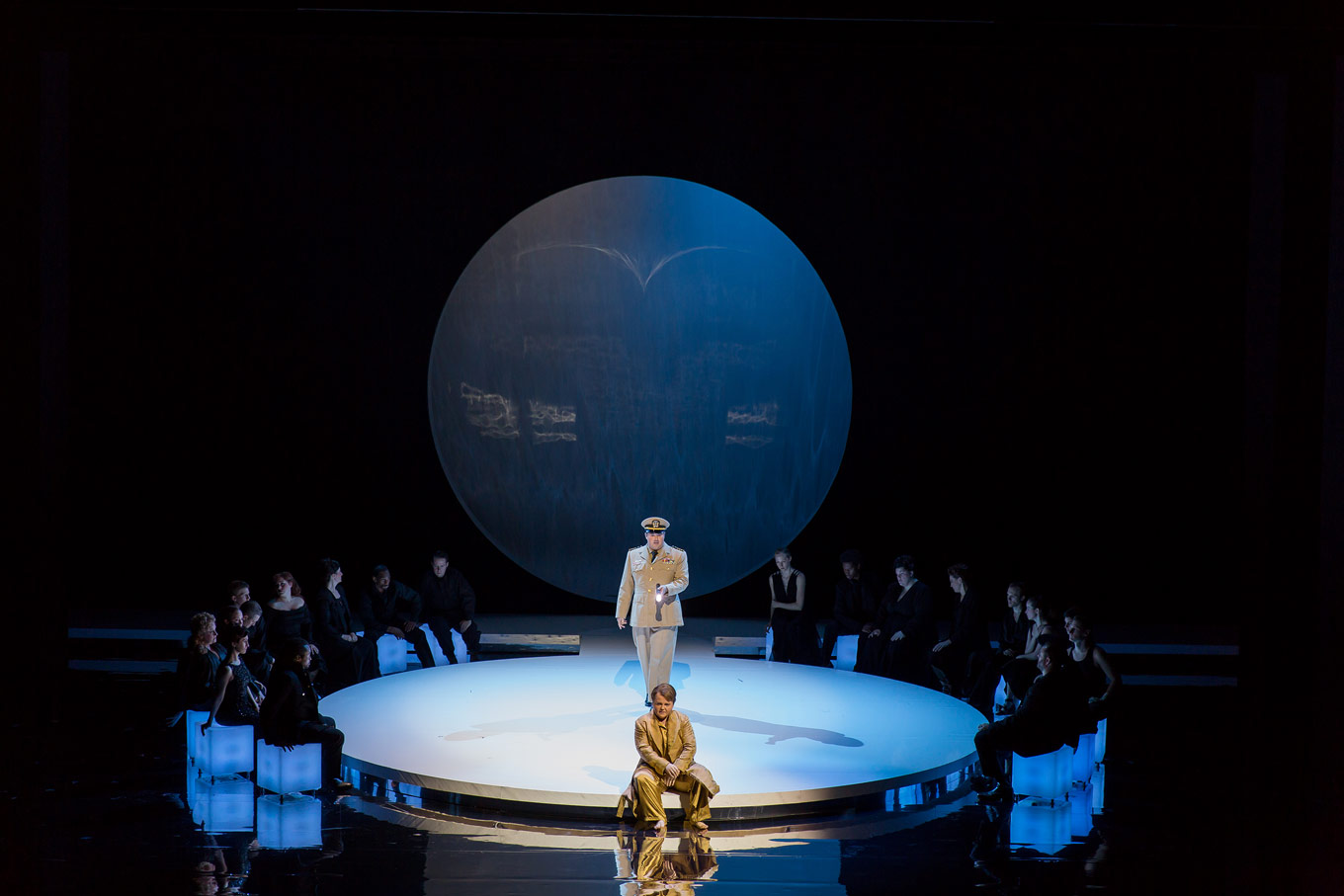
Over the course of the evening, cracks begin to appear in Alcina’s illusion and ultimately, Bradamante and Ruggiero break Alcina’s spell and release her prisoners. They do find freedom in the truth, but it is Alcina, who perpetuated the lie in the first place, who is left to bear reality’s heaviest burden.
Alcina runs through November 19. For details and ticket information, follow our box office links below.


Comments